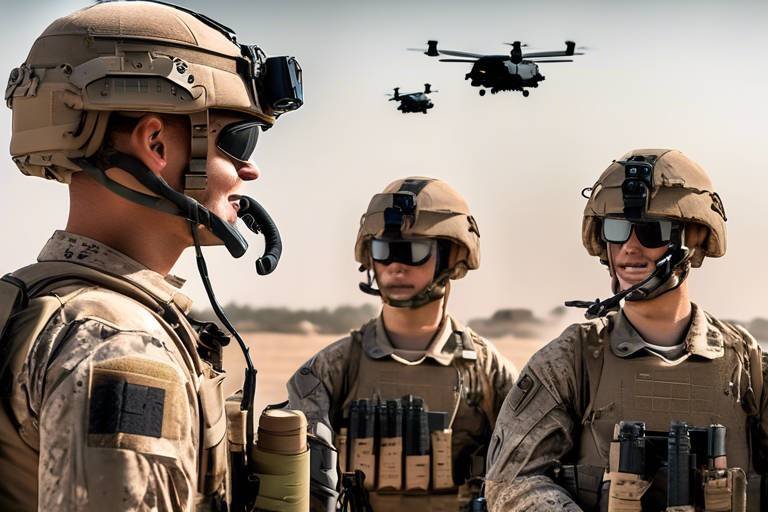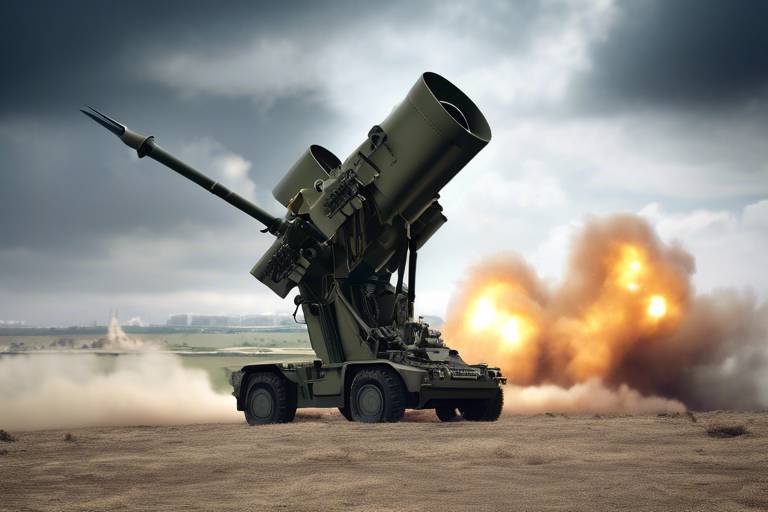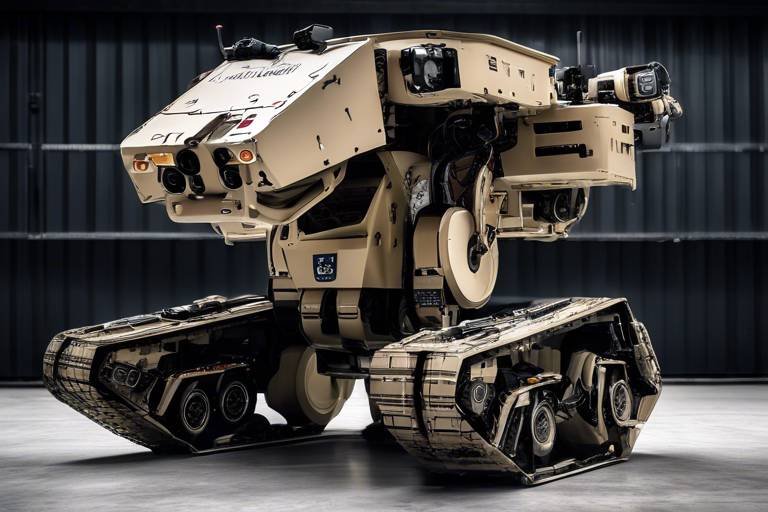Exploring AI in Military Psychological Operations
In today's rapidly evolving technological landscape, artificial intelligence (AI) is not just a buzzword; it’s a game-changer, particularly in the realm of military operations. As nations strive to gain an upper hand, the integration of AI into psychological operations has become a focal point of interest. Imagine a battlefield where not only weapons but also information is wielded as a weapon. This article delves into the multifaceted role of AI in military psychological operations, examining its applications, benefits, challenges, and ethical considerations in modern warfare.
AI technologies have truly transformed the landscape of psychological warfare. Gone are the days when military strategists relied solely on traditional methods of influence and persuasion. Today, AI enables a more nuanced approach, allowing for the analysis of vast amounts of data to craft tailored messages that resonate with specific audiences. Think of it as a digital puppeteer, pulling the strings of perception and belief. By leveraging machine learning algorithms and data analytics, military operations can enhance their strategies significantly.
AI finds diverse applications in military contexts, particularly within psychological operations. From data analysis to predictive modeling, the technology is reshaping how military personnel approach their missions. Consider the following key areas where AI is making a substantial impact:
- Data Analysis and Targeting: AI systems can sift through enormous datasets to identify and target specific demographics, ensuring that messages hit the mark.
- Social Media Monitoring: With the rise of social media, AI tools can monitor platforms to gauge public sentiment and influence narratives effectively.
- Predictive Modeling: AI can forecast the outcomes of psychological operations, allowing for better planning and execution.
Utilizing AI for data analysis allows military operations to identify and target specific demographics with incredible precision. By analyzing patterns in behavior and preferences, military strategists can craft messages that are not only relevant but also compelling. This targeted approach enhances the effectiveness of psychological operations, making it easier to sway public opinion or demoralize adversaries. The power of AI lies in its ability to process complex data sets and deliver actionable insights, creating a significant advantage on the battlefield.
In an age where information spreads like wildfire, AI tools can monitor social media platforms to gauge public sentiment and influence narratives. Social media has become a battleground for ideas, and understanding the pulse of the public is crucial. By analyzing trends and sentiments expressed online, military operations can craft messages that resonate with their target audience, effectively shaping the narrative in their favor. The significance of social media data cannot be overstated; it’s a treasure trove of insights waiting to be mined.
Sentiment analysis powered by AI helps military analysts understand public emotions and attitudes. Techniques such as natural language processing (NLP) allow for the interpretation of sentiments in social media posts, news articles, and other forms of communication. By identifying whether the sentiment is positive, negative, or neutral, military strategists can adjust their psychological operations accordingly. This real-time feedback loop is invaluable in shaping effective strategies that align with public perception.
Predictive modeling using AI can forecast outcomes of psychological operations, providing a roadmap for success. By analyzing historical data and current trends, AI systems can predict how specific actions will influence public sentiment or enemy morale. This foresight allows military planners to make informed decisions, minimizing risks and maximizing impact. The ability to anticipate reactions can be likened to having a crystal ball, enabling military leaders to navigate the complexities of psychological warfare with greater confidence.
Despite its advantages, AI in military psychological operations faces significant challenges. The technology is not infallible and can encounter various obstacles in its implementation. It’s essential to address these limitations to ensure the ethical and effective use of AI in military contexts.
The use of AI in psychological operations raises ethical questions regarding manipulation and consent. Are we crossing a line when we use technology to influence thoughts and behaviors? This part addresses the moral implications of AI in military applications and the need for ethical guidelines to navigate these murky waters. The fine line between persuasion and manipulation must be carefully considered, as the consequences can be far-reaching.
AI technologies can encounter issues such as bias and inaccuracies, which can affect the effectiveness of psychological operations. For instance, if an AI system is trained on biased data, it may produce skewed results that could lead to misguided strategies. Recognizing and addressing these technological limitations is vital to harnessing the full potential of AI in military operations.
Looking ahead, AI's role in military psychological operations is expected to grow. Innovations in technology will likely lead to more sophisticated tools for data analysis, sentiment tracking, and predictive modeling. As military operations continue to evolve, so too will the strategies employed to influence and persuade. The future promises exciting developments that could reshape the landscape of military strategy, making it more dynamic and responsive to the ever-changing environment.
- What is AI's impact on military psychological operations? AI enhances targeting precision, enables real-time sentiment analysis, and predicts outcomes, making psychological operations more effective.
- Are there ethical concerns regarding AI in military applications? Yes, the use of AI raises questions about manipulation, consent, and the moral implications of influencing public sentiment.
- What are the limitations of AI in military operations? AI can face issues like bias, inaccuracies, and challenges in data interpretation, which can hinder its effectiveness.

The Role of AI in Psychological Warfare
In the ever-evolving landscape of modern warfare, artificial intelligence (AI) has emerged as a game-changer, particularly in the realm of psychological operations. Traditional methods of psychological warfare often relied on rudimentary tactics, such as propaganda leaflets or radio broadcasts. However, with the advent of AI technologies, military strategists now have access to a suite of tools that can significantly enhance their ability to influence and persuade. Imagine having the power to analyze vast amounts of data in real-time, identifying trends and sentiments that can shape public perception almost instantaneously. This is the reality that AI brings to the table.
One of the most profound ways AI transforms psychological warfare is through its ability to process and analyze data at an unprecedented scale. For instance, AI algorithms can sift through millions of social media posts, news articles, and online discussions to gauge public sentiment and identify key influencers. This capability not only allows military operations to craft more targeted messages but also enables them to anticipate the reactions of different demographic groups. By understanding the emotional landscape of a population, military strategists can tailor their psychological operations to resonate more deeply, making their efforts far more effective.
Moreover, AI enhances traditional methods of psychological warfare by introducing new avenues for engagement. Consider the use of chatbots and automated messaging systems that can disseminate information or misinformation rapidly. These tools can engage with users on popular platforms, creating a semblance of dialogue that can sway opinions or reinforce narratives. The ability to interact in real-time with individuals allows military operations to create a more immersive psychological experience, blurring the lines between reality and perception.
However, the integration of AI into psychological warfare is not without its challenges. The technology can often amplify existing biases in data, leading to skewed analyses and potentially harmful outcomes. For example, if an AI system is trained on biased data, it may perpetuate stereotypes or misinterpret the sentiments of certain groups. This raises important questions about the ethical implications of using AI in such sensitive operations. How do we ensure that these powerful tools are used responsibly and do not infringe upon individual rights? The answers to these questions will shape the future of AI in military psychological operations.
In conclusion, AI's role in psychological warfare is both revolutionary and complex. It offers unprecedented opportunities for influence and persuasion, but it also comes with significant ethical and practical challenges. As military operations continue to embrace these technologies, it is crucial to navigate the landscape with care, ensuring that the benefits of AI are harnessed while mitigating its risks.
- What is psychological warfare? Psychological warfare involves the use of propaganda and other psychological tactics to influence the beliefs and behaviors of individuals or groups.
- How does AI enhance psychological warfare? AI enhances psychological warfare by analyzing large datasets to understand public sentiment, enabling targeted messaging, and automating interactions through tools like chatbots.
- What are the ethical concerns surrounding AI in military operations? Ethical concerns include potential manipulation, invasion of privacy, and the risk of biased data leading to harmful outcomes.
- Can AI be trusted in military operations? While AI can provide valuable insights, it is essential to remain vigilant about its limitations and biases to ensure responsible use in military contexts.

Applications of AI in Military Operations
Artificial Intelligence (AI) is rapidly becoming a game-changer in military operations, particularly in the realm of psychological warfare. Its applications are as diverse as they are impactful, reshaping how military strategists approach the complexities of modern conflicts. From data analysis to predictive modeling, AI provides tools that enhance operational effectiveness and efficiency. Imagine having a digital assistant that not only processes vast amounts of information but also learns and adapts to new data in real-time. That's precisely what AI brings to the table.
One of the most significant applications of AI in military operations is in the realm of data analysis and targeting. By leveraging machine learning algorithms, military forces can sift through mountains of data to identify specific demographics that may be susceptible to psychological operations. This targeting precision is crucial; it allows for tailored messaging that resonates with the intended audience. For example, AI can analyze social media interactions to identify groups that express particular sentiments, enabling military strategists to craft messages that align with those feelings. This approach not only increases the chances of success but also minimizes collateral damage by avoiding misdirected efforts.
In today's digital age, social media platforms serve as a rich source of information on public sentiment. AI tools are capable of monitoring these platforms in real-time, providing military analysts with insights into how narratives are formed and shifted. By analyzing trends and discussions, AI can help military operations understand the prevailing attitudes of different populations. This capability is crucial for developing effective psychological strategies that can either reinforce friendly narratives or undermine adversarial ones. For instance, if a particular narrative gains traction on social media, AI can alert military strategists to respond swiftly, ensuring that their messaging is timely and relevant.
Another vital aspect of AI's application in military operations is sentiment analysis. This technique allows military analysts to gauge public emotions and attitudes towards various issues, from geopolitical events to military interventions. By employing natural language processing (NLP), AI can analyze text data from social media, news articles, and other sources to extract sentiments. This analysis not only informs military strategy but also helps in predicting how certain actions may be perceived by the public. The implications are profound; understanding the emotional landscape can guide military decisions, ensuring they align with public sentiment and minimizing backlash.
Looking ahead, predictive modeling powered by AI can forecast the outcomes of different psychological operations. By analyzing historical data and current trends, AI can simulate various scenarios, helping military planners visualize potential consequences before taking action. This capability allows for a more calculated approach, reducing the element of surprise that can lead to failure. For example, if a military operation is planned to disseminate a particular message, predictive models can help assess how different demographics might react, enabling strategists to adjust their tactics accordingly. The ability to predict outcomes with greater accuracy not only enhances operational effectiveness but also conserves valuable resources.
In summary, the applications of AI in military operations are extensive and transformative. From data analysis and targeting to social media monitoring and predictive modeling, AI provides military forces with the tools needed to navigate the complexities of modern warfare. As these technologies continue to evolve, we can expect even greater advancements that will further enhance the effectiveness of psychological operations.
- What is the primary role of AI in military psychological operations?
AI enhances targeting precision, improves data analysis, and aids in predictive modeling to inform military strategies effectively. - How does AI help in social media monitoring?
AI tools analyze social media data to gauge public sentiment, allowing military strategists to shape narratives and respond to emerging trends. - What are the ethical considerations of using AI in military operations?
The use of AI raises concerns about manipulation, consent, and the potential for bias, necessitating the development of ethical guidelines. - Can AI predict the outcomes of psychological operations?
Yes, AI can utilize predictive modeling to forecast the potential reactions of different demographics, aiding in strategic planning.
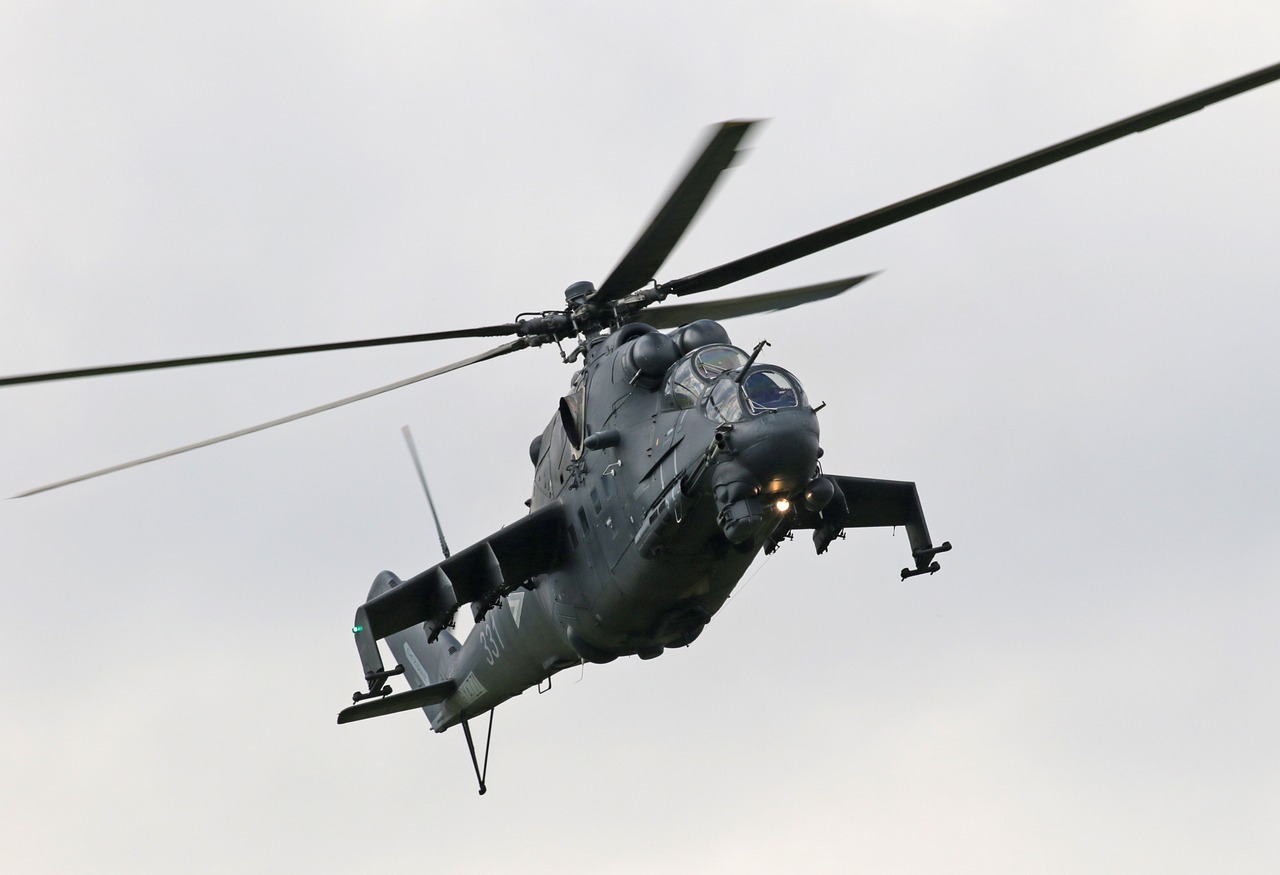
Data Analysis and Targeting
In the realm of military operations, the ability to effectively analyze data and precisely target specific demographics is nothing short of revolutionary. With the advent of artificial intelligence, military strategists can sift through vast amounts of information at lightning speed, transforming raw data into actionable insights. Imagine trying to find a needle in a haystack; now, picture having a magnet that not only finds the needle but also tells you where it’s been and how it can be used. This is the power of AI in .
AI algorithms can process data from various sources, including satellite imagery, intelligence reports, and even social media interactions. By analyzing patterns and trends, these algorithms can identify key demographics that are most susceptible to influence. This means that military operations can tailor their psychological strategies to resonate with specific groups, enhancing their chances of success. For instance, if data shows that a particular community is experiencing unrest, targeted messaging can be crafted to either alleviate their concerns or sway them towards a desired narrative.
One of the most significant advantages of AI in this context is its ability to provide real-time insights. Traditional methods of data analysis can be time-consuming and often yield outdated information. In contrast, AI can continuously monitor and analyze data streams, ensuring that military leaders have the most current information at their disposal. This capability allows for rapid adjustments to strategies, making operations more agile and responsive to changing circumstances.
However, it’s essential to recognize the complexities involved in data analysis and targeting. Not all data is created equal, and the effectiveness of AI-driven insights can be hampered by data quality issues. Inaccurate or biased data can lead to misguided targeting, resulting in unintended consequences. Therefore, military operations must ensure that the data being analyzed is both reliable and representative.
To illustrate the impact of AI on data analysis and targeting in military psychological operations, consider the following table that outlines key benefits and challenges:
| Benefits | Challenges |
|---|---|
| Enhanced targeting precision | Data quality and reliability issues |
| Real-time data processing | Potential biases in AI algorithms |
| Ability to identify emerging trends | Ethical implications of data use |
In conclusion, the integration of AI into data analysis and targeting represents a significant leap forward in military psychological operations. By harnessing the power of AI, military forces can not only enhance their operational effectiveness but also navigate the complexities of modern warfare with greater agility. As we continue to explore the capabilities of AI, it becomes increasingly clear that its role in military strategy will only expand, paving the way for more sophisticated and effective psychological operations.
- How does AI improve targeting in military operations?
AI analyzes vast amounts of data to identify specific demographics, allowing for tailored psychological strategies that enhance effectiveness. - What are the main challenges of using AI in data analysis?
Challenges include data quality issues, potential biases in algorithms, and ethical implications surrounding data use. - Can AI provide real-time insights for military operations?
Yes, AI can continuously monitor data streams, providing military leaders with the most current information for rapid decision-making.
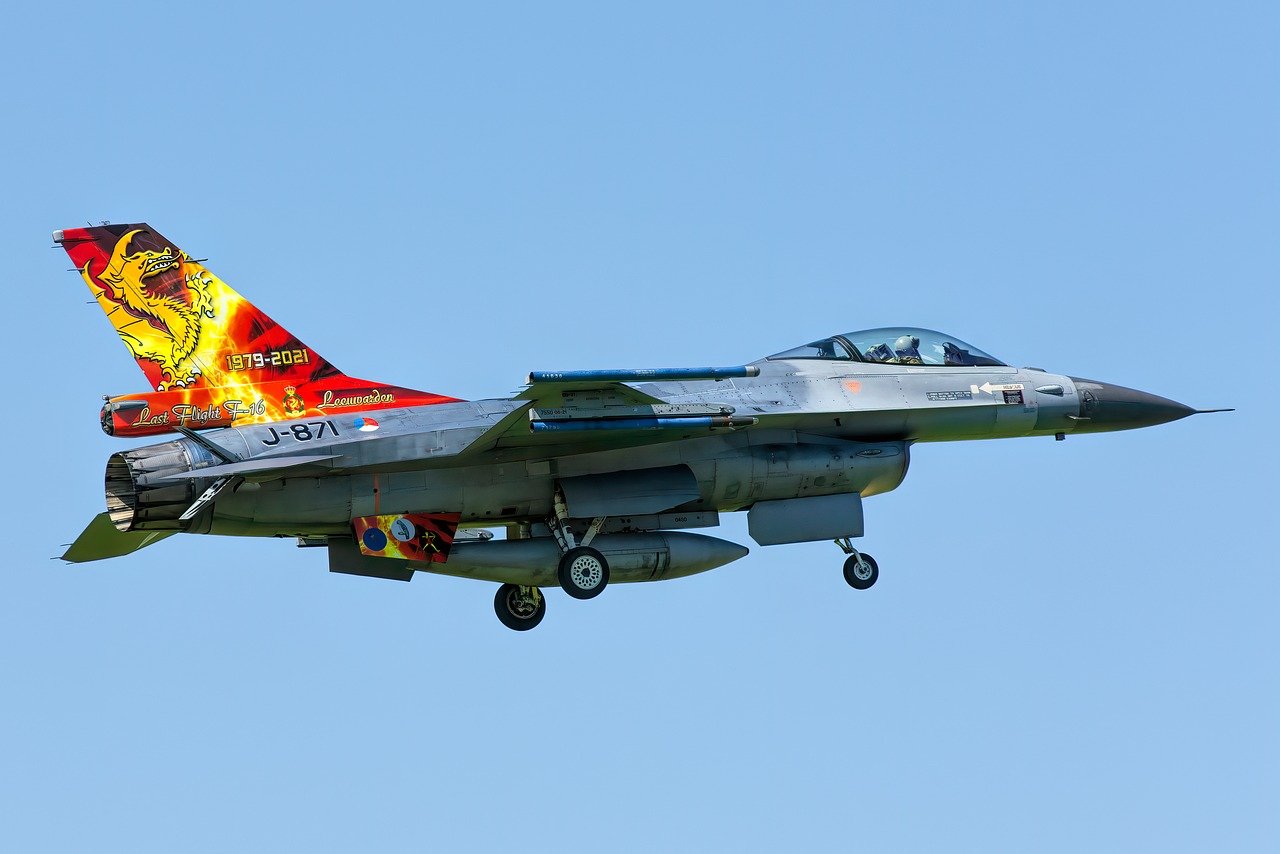
Social Media Monitoring
In today's digital age, social media has become a powerful tool for communication, influence, and information dissemination. The military has recognized this potential and is increasingly leveraging artificial intelligence to monitor social media platforms. By harnessing AI technologies, military psychological operations can gain invaluable insights into public sentiment and behavior. This monitoring is not merely about tracking conversations; it’s about understanding the pulse of the populace and shaping narratives in ways that align with military objectives.
AI tools can analyze vast amounts of data from various social media channels, such as Twitter, Facebook, and Instagram, in real-time. This capability allows military analysts to identify trends, gauge public reactions, and even predict shifts in sentiment. For instance, when a significant event occurs—be it a military operation, a political announcement, or a humanitarian crisis—AI can quickly assess how these events are being discussed online. By evaluating the frequency of certain keywords or hashtags, the military can discern whether the public's mood is turning favorable or hostile.
Moreover, AI-driven social media monitoring can facilitate targeted psychological operations. By identifying key influencers and opinion leaders within specific communities, military strategists can tailor their messages to resonate with these individuals, thereby amplifying their reach. Imagine a scenario where a military operation is met with skepticism. Through careful monitoring, the military can craft counter-narratives that address concerns directly, utilizing platforms where those conversations are occurring. This proactive approach not only helps in managing perceptions but also aids in maintaining operational security.
The significance of social media data in shaping psychological strategies cannot be overstated. Here are some of the critical factors that highlight its importance:
- Real-time Feedback: Social media provides instantaneous reactions to events, allowing for rapid adjustments in strategy.
- Demographic Insights: AI can segment audiences based on interests, locations, and behaviors, enabling targeted messaging.
- Influencer Engagement: Identifying and engaging with key figures can help sway public opinion more effectively.
In conclusion, social media monitoring powered by AI is revolutionizing military psychological operations. By tapping into the vast ocean of online conversations, the military can better understand and influence public sentiment, ensuring that their strategies are both effective and timely. As technology continues to evolve, the integration of AI in social media monitoring will likely become even more sophisticated, paving the way for new methodologies in psychological warfare.
- What is social media monitoring in military operations?
Social media monitoring involves tracking and analyzing conversations on social media platforms to gauge public sentiment and influence narratives relevant to military objectives. - How does AI enhance social media monitoring?
AI enhances social media monitoring by analyzing large volumes of data quickly, identifying trends, and providing insights that can inform military strategies. - What are the ethical concerns surrounding social media monitoring?
Ethical concerns include issues of privacy, consent, and the potential for manipulation of public opinion without transparency.

Sentiment Analysis Techniques
In the realm of military psychological operations, sentiment analysis emerges as a pivotal technique, enabling analysts to decode the emotional undertones of public discourse. By leveraging artificial intelligence, military strategists can sift through vast amounts of data, extracting insights that inform their operations. Imagine trying to understand the mood of a crowd at a concert; it's not just about the music but the energy, the reactions, and the collective vibe. Similarly, sentiment analysis provides a lens through which military operations can gauge public sentiment and adjust their strategies accordingly.
At its core, sentiment analysis involves the use of algorithms to determine whether the sentiment behind a piece of text is positive, negative, or neutral. This is achieved through various techniques, including:
- Natural Language Processing (NLP): This technique enables machines to understand and interpret human language, making it possible to analyze social media posts, news articles, and other text sources for sentiment.
- Machine Learning: By training algorithms on large datasets, these systems learn to identify patterns and predict sentiments based on previously labeled data.
- Lexicon-Based Approaches: This method utilizes predefined lists of words associated with sentiments, allowing for quick assessments of text based on the presence of these words.
Each of these techniques offers unique advantages and can be used in tandem to enhance the accuracy of sentiment analysis. For instance, NLP can help in understanding context, which is crucial because the same word can convey different meanings depending on how it's used. A classic example is the word "sick," which can express both admiration in slang and actual illness. Thus, combining NLP with machine learning can significantly improve the system's ability to interpret nuances in language.
Moreover, the implications of sentiment analysis in military operations are profound. By understanding how different demographics feel about certain issues, military strategists can tailor their messaging to either bolster support or mitigate dissent. For example, if sentiment analysis reveals growing discontent among a specific group, targeted messaging can be developed to address their concerns and sway their opinions. This strategic application of sentiment analysis not only enhances operational effectiveness but also fosters a deeper connection with the audience, akin to a skilled negotiator who knows when to listen and when to speak.
As we look to the future, the integration of advanced sentiment analysis techniques will likely become even more sophisticated. With the advent of deep learning and more complex algorithms, the accuracy and depth of sentiment analysis will continue to evolve, providing military operations with an invaluable tool for understanding and influencing public perception.
- What is sentiment analysis? Sentiment analysis is the process of determining the emotional tone behind a series of words, used to gain an understanding of the attitudes, opinions, and emotions expressed within an online mention.
- How is sentiment analysis used in military operations? In military operations, sentiment analysis helps gauge public opinion, allowing for tailored communication strategies that can influence perceptions and behaviors.
- What technologies are used in sentiment analysis? Technologies such as natural language processing (NLP), machine learning, and lexicon-based approaches are commonly employed to analyze sentiments.
- What are the challenges of sentiment analysis? Challenges include understanding context, dealing with sarcasm, and ensuring the accuracy of the algorithms used in analysis.
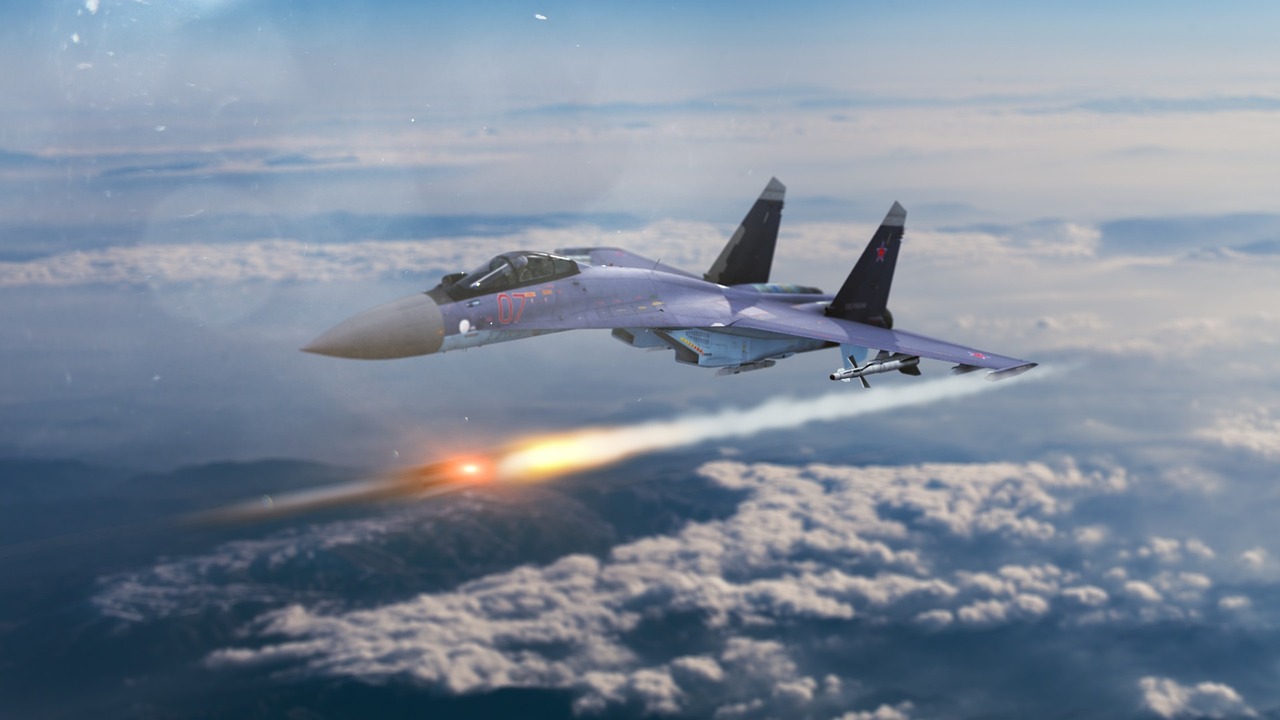
Predictive Modeling for Operations
Predictive modeling is rapidly becoming a cornerstone of military psychological operations, leveraging the power of artificial intelligence to forecast the outcomes of various strategies before they are implemented. Imagine having a crystal ball that not only predicts the future but also provides actionable insights based on vast amounts of data. This is precisely what AI-driven predictive modeling offers. By analyzing historical data, current trends, and potential future scenarios, military strategists can make informed decisions that enhance the effectiveness of their psychological operations.
At its core, predictive modeling involves using algorithms to identify patterns and correlations within data sets. For military operations, this means examining factors such as enemy behavior, public sentiment, and media influence. The ability to anticipate how different segments of the population might react to certain messages or actions can significantly improve the precision of psychological strategies. For instance, if data indicates that a particular demographic is likely to respond positively to a specific narrative, military planners can tailor their communications accordingly, thereby maximizing impact.
One of the most exciting aspects of predictive modeling in this context is its capacity for real-time analysis. As situations evolve on the ground, AI systems can continuously analyze incoming data, adjusting predictions and recommendations instantaneously. This agility is crucial in modern warfare, where the speed of information can often dictate the success or failure of operations. For example, if a military operation is underway and social media sentiment shifts dramatically, AI can alert commanders to this change, allowing them to pivot their strategy in real-time.
To illustrate the power of predictive modeling, consider the following table that summarizes key components and benefits of this technology in military operations:
| Component | Description | Benefit |
|---|---|---|
| Data Collection | Gathering information from various sources such as social media, news outlets, and intelligence reports. | Provides a comprehensive view of the operational environment. |
| Pattern Recognition | Using algorithms to identify trends and behaviors from historical data. | Enables the anticipation of enemy actions and public reactions. |
| Scenario Simulation | Creating simulations based on different operational strategies. | Helps in assessing potential outcomes and refining tactics. |
| Real-time Adjustment | Continuous monitoring and updating of predictions based on new data. | Allows for agile responses to changing conditions. |
However, it's important to recognize that predictive modeling is not without its challenges. The accuracy of predictions is heavily dependent on the quality of the data being analyzed. Inaccurate or biased data can lead to misguided strategies, potentially resulting in unintended consequences. Moreover, the complexity of human behavior means that even the most sophisticated models can only offer probabilities, not certainties. This is where the human element remains irreplaceable; military leaders must interpret AI-generated insights with a critical eye and a deep understanding of the broader context.
In conclusion, predictive modeling stands at the forefront of enhancing military psychological operations. By harnessing the power of AI to forecast outcomes, military strategists can craft more effective and targeted psychological campaigns. As technology continues to evolve, the integration of predictive modeling into military operations will likely become even more sophisticated, paving the way for a new era of strategic planning and execution.
- What is predictive modeling in military operations?
Predictive modeling involves using AI algorithms to analyze data and forecast the outcomes of military strategies, enhancing decision-making in psychological operations. - How does AI improve psychological operations?
AI enhances psychological operations by providing real-time data analysis, identifying patterns in behavior, and allowing for rapid adjustments to strategies based on current conditions. - What are the challenges of using AI in military operations?
Challenges include data quality, potential biases in algorithms, and the unpredictable nature of human behavior, which can complicate predictions. - Can predictive modeling guarantee success in military operations?
While predictive modeling can improve the chances of success by offering insights, it cannot guarantee outcomes due to the complexities of warfare and human responses.

Challenges and Limitations of AI
As we dive deeper into the realm of artificial intelligence (AI) in military psychological operations, it's crucial to address the challenges and limitations that accompany this technological advancement. While AI brings a plethora of benefits, it also presents significant hurdles that military strategists must navigate. One of the primary challenges is the ethical implications of using AI for psychological manipulation. The line between influence and manipulation can be thin, and the potential for misuse raises serious moral questions. Are we crossing ethical boundaries when we leverage AI to sway public opinion? This is a debate that needs to be front and center as we consider the future of AI in military contexts.
Another challenge lies in the technological limitations of AI itself. Despite its capabilities, AI is not infallible. Bias in algorithms can lead to skewed data interpretations, which in turn can affect the outcomes of psychological operations. For instance, if an AI system is trained on biased data, it may favor certain demographics over others, leading to ineffective targeting or even backlash against military initiatives. The reliability of AI predictions can also be questionable; unforeseen variables in human behavior can render even the most sophisticated models inaccurate.
Moreover, the implementation of AI technologies in military operations often encounters logistical challenges. Integrating AI systems with existing military frameworks requires significant investment in both time and resources. Training personnel to effectively use these technologies is another hurdle. Soldiers and strategists alike must understand not just how to operate AI systems, but also how to interpret the results they provide. This learning curve can slow down the operational tempo, which is often critical in military settings.
Lastly, we can't ignore the security vulnerabilities associated with AI technologies. As military operations increasingly rely on AI, the risk of cyber-attacks targeting these systems grows. If adversaries can manipulate or disable AI tools, the consequences could be dire. Imagine a scenario where an enemy successfully hacks into an AI-driven psychological operation, turning it against its own military. This potential for sabotage adds another layer of complexity to the deployment of AI in military contexts.
In summary, while AI offers exciting possibilities for enhancing military psychological operations, we must tread carefully. The ethical, technological, logistical, and security challenges present a formidable landscape that requires thorough consideration and strategic planning. As we look to the future, addressing these limitations will be essential for harnessing the full potential of AI in a responsible and effective manner.
- What are some ethical concerns regarding AI in military operations? The primary concerns revolve around manipulation, consent, and the potential for misuse of AI technologies.
- How can biases in AI affect military operations? Biases can lead to ineffective targeting and skewed data interpretations, which can compromise the success of psychological operations.
- What logistical challenges do militaries face when implementing AI? These include the need for significant investment in resources, training personnel, and integrating AI with existing systems.
- Are AI technologies completely reliable? No, AI systems can be prone to inaccuracies and can be affected by unforeseen variables in human behavior.
- What security risks are associated with AI in military contexts? The primary risk is the potential for cyber-attacks that could manipulate or disable AI systems, posing serious operational threats.

Ethical Considerations
As we delve deeper into the integration of artificial intelligence in military psychological operations, we cannot overlook the profound ethical considerations that accompany these advancements. The power of AI to influence thoughts and behaviors raises significant questions about manipulation, consent, and the very essence of autonomy. Are we crossing a line when we use sophisticated algorithms to sway public opinion or to instill fear in adversaries? As we explore these concerns, it's crucial to recognize that the implications of AI in psychological warfare are not just technical; they are deeply moral.
One of the primary ethical dilemmas revolves around the concept of manipulation. When AI systems are employed to craft messages that resonate with specific demographics, there is a fine line between persuasion and deception. The question arises: when does strategic communication become manipulative? This is particularly concerning in contexts where the target audience may not be fully aware that they are being influenced by AI-driven narratives. The potential for misinformation and disinformation looms large, especially in an age where social media can amplify these tactics exponentially.
Furthermore, the issue of consent is paramount. In traditional warfare, the principles of engagement often include considerations of civilian safety and the protection of non-combatants. However, when AI is used to target specific populations with psychological operations, the question of whether these individuals have consented to be part of such operations becomes contentious. Are we, as a society, willing to accept the notion that the ends justify the means, especially when those ends involve influencing the very thoughts and beliefs of individuals?
In light of these concerns, it is essential for military and governmental organizations to establish robust ethical guidelines governing the use of AI in psychological operations. This includes:
- Transparency: Ensuring that operations are conducted openly and that the public is informed about the use of AI in psychological warfare.
- Accountability: Implementing systems that hold individuals and organizations accountable for unethical practices in AI deployment.
- Oversight: Establishing independent bodies to review and monitor the use of AI in military operations to prevent abuse.
Moreover, the technological limitations of AI systems can exacerbate ethical issues. Bias in AI algorithms can lead to unfair targeting or misrepresentation of certain groups. As we strive for enhanced operational effectiveness, we must also prioritize the integrity of our methods. The implications of biased AI could not only undermine the effectiveness of psychological operations but also inflict harm on innocent populations.
In conclusion, while the potential of AI in military psychological operations is vast, it is imperative that we tread carefully. The ethical considerations surrounding manipulation, consent, and accountability must be at the forefront of any discussion on this topic. As we move forward, we must ensure that our advancements in technology do not come at the cost of our moral compass.
- What are the main ethical concerns regarding AI in military operations?
The main concerns include manipulation, consent, accountability, and the potential for bias in AI algorithms. - How can ethical guidelines help in the use of AI for psychological operations?
Ethical guidelines can provide a framework for transparency, accountability, and oversight, ensuring that AI is used responsibly. - What role does bias play in AI technologies?
Bias in AI can lead to unfair targeting and misrepresentation, potentially causing harm to specific groups and undermining the effectiveness of operations. - Is there a way to ensure public awareness about AI psychological operations?
Yes, transparency in military operations and public communication can help ensure that individuals are informed about the use of AI in psychological warfare.

Technological Limitations
While the integration of artificial intelligence in military psychological operations offers groundbreaking advancements, it is crucial to recognize the that accompany these innovations. AI systems, despite their sophistication, are not without flaws. For instance, they are susceptible to bias, which can stem from the data they are trained on. If the training data reflects societal biases, the AI's outputs may inadvertently reinforce stereotypes or misrepresent certain groups. This can lead to skewed targeting in psychological operations, undermining the very objectives these strategies aim to achieve.
Moreover, the accuracy of AI algorithms can vary significantly. A poorly designed algorithm can produce inaccurate predictions, which can have dire consequences in military contexts. Imagine relying on an AI system to forecast the emotional response of a population to a military maneuver, only to find that the predictions were fundamentally flawed. Such errors could lead to miscalculations in strategy, potentially endangering lives and resources.
Additionally, the complexity of human emotions and behaviors poses a significant challenge for AI systems. Unlike quantitative data, human sentiments are nuanced and often unpredictable. AI may struggle to interpret these subtleties accurately, leading to a gap between the intended psychological impact and the actual response from the target audience. This limitation highlights the need for human oversight in AI-driven operations, ensuring that decisions are not solely based on algorithmic outputs.
Furthermore, the rapid pace of technological advancement means that military organizations often face a catch-up game. As new AI technologies emerge, older systems may become obsolete, leading to inconsistencies in operational capabilities. This can create a scenario where some units are equipped with cutting-edge technology while others lag behind, resulting in a fragmented approach to psychological operations.
In summary, while AI holds immense potential for enhancing military psychological operations, it is essential to approach its implementation with caution. Understanding the limitations of technology will not only help mitigate risks but also ensure that AI is used responsibly and effectively in the complex arena of psychological warfare.
- What are the main limitations of AI in military psychological operations?
AI can suffer from bias, inaccuracies in predictions, and struggles to interpret complex human emotions. - How does bias in AI affect military strategies?
Bias can lead to skewed targeting and misrepresentation of certain demographics, undermining operational goals. - Is human oversight necessary in AI-driven military operations?
Yes, human oversight is crucial to ensure that decisions account for the nuances of human behavior and emotions. - What challenges do outdated technologies pose in military operations?
Outdated technologies can lead to inconsistencies in capabilities across different military units, affecting overall operational effectiveness.

The Future of AI in Military Operations
As we gaze into the horizon of military operations, the integration of artificial intelligence (AI) is poised to redefine the very essence of warfare. Imagine a battlefield where decisions are made not just by human intuition, but by sophisticated algorithms that analyze vast amounts of data in mere seconds. This fusion of technology and strategy is not just a distant dream; it’s fast becoming a reality. But what does this mean for the future of military operations? Let’s dive deeper.
One of the most exciting prospects of AI in military operations is its potential for enhanced decision-making. With AI systems capable of processing and analyzing data from numerous sources—such as satellite imagery, social media, and intelligence reports—military leaders can gain insights that were previously unimaginable. This capability allows for quicker responses to emerging threats, ensuring that commanders are always one step ahead. The future might see AI systems that can predict enemy movements or even suggest optimal strategies based on real-time data analysis.
Additionally, the concept of autonomous systems is set to revolutionize military engagements. Drones and robotic ground vehicles, powered by AI, can operate with minimal human intervention. These machines can be deployed for reconnaissance missions, surveillance, and even combat operations. Picture a scenario where a fleet of drones, equipped with AI, can autonomously navigate complex environments, identify targets, and execute missions without direct human control. While this raises questions about accountability and ethics, the operational advantages are undeniable.
Moreover, AI's role in cyber warfare is becoming increasingly significant. As military operations become more interconnected, the need for robust cybersecurity measures grows. AI can help in detecting anomalies, predicting potential cyber threats, and responding to attacks in real-time. This proactive approach can safeguard vital military infrastructure and ensure the integrity of operations. However, as we develop these AI systems, we must remain vigilant against the risks of adversaries employing similar technologies against us.
Despite the promising future, there are challenges that must be addressed. The reliance on AI could lead to a skills gap among military personnel, as traditional tactics may become less emphasized in favor of technology-driven strategies. Training programs will need to evolve, focusing not only on the operation of AI systems but also on understanding their limitations and ethical implications. Military leaders will need to cultivate a culture that embraces innovation while remaining grounded in the core principles of warfare.
To encapsulate the future of AI in military operations, we can visualize a landscape where technology and strategy intertwine seamlessly. The potential for increased efficiency, enhanced decision-making, and improved operational effectiveness is immense. However, as we forge ahead, we must navigate the ethical considerations and technological limitations that accompany this transformation. The future of warfare may very well depend on our ability to harness AI responsibly and effectively.
- What are the main benefits of AI in military operations?
AI enhances decision-making, improves targeting precision, and increases operational efficiency. - How does AI impact ethical considerations in warfare?
AI raises questions about manipulation, consent, and accountability in military operations. - What challenges does AI face in military contexts?
Challenges include technological limitations, potential biases, and the need for skilled personnel. - Will AI replace human soldiers in the future?
While AI will play a significant role, human judgment and ethics will remain crucial in military operations.
Frequently Asked Questions
- What is the role of AI in military psychological operations?
AI plays a crucial role in military psychological operations by enhancing traditional methods of influence and persuasion. It enables more effective strategies through data analysis, predictive modeling, and social media monitoring, allowing military forces to tailor their approaches to specific target demographics.
- How does AI improve targeting precision in military operations?
AI improves targeting precision by analyzing vast amounts of data to identify specific demographics and their behaviors. By leveraging advanced algorithms, military operations can focus their psychological strategies on the most relevant groups, enhancing the effectiveness of their campaigns.
- What are the ethical considerations of using AI in psychological warfare?
The use of AI in psychological warfare raises significant ethical concerns, particularly regarding manipulation and consent. Questions arise about the morality of influencing public sentiment and the potential consequences of such actions, highlighting the need for strict ethical guidelines in military applications.
- Can AI accurately analyze public sentiment on social media?
Yes, AI can accurately analyze public sentiment on social media by employing sentiment analysis techniques. These tools interpret emotional tones and attitudes expressed online, helping military analysts understand public perceptions and adjust their psychological strategies accordingly.
- What are the limitations of AI technologies in military operations?
Despite their advantages, AI technologies face limitations such as biases in data and inaccuracies in predictions. These technological challenges can impact the effectiveness of psychological operations, making it essential to continually refine AI systems and address potential pitfalls.
- How might AI shape the future of military psychological operations?
AI is expected to play an increasingly significant role in military psychological operations in the future. Innovations in data analysis, predictive modeling, and sentiment analysis will likely lead to more sophisticated strategies, ultimately transforming how military forces approach psychological warfare.












